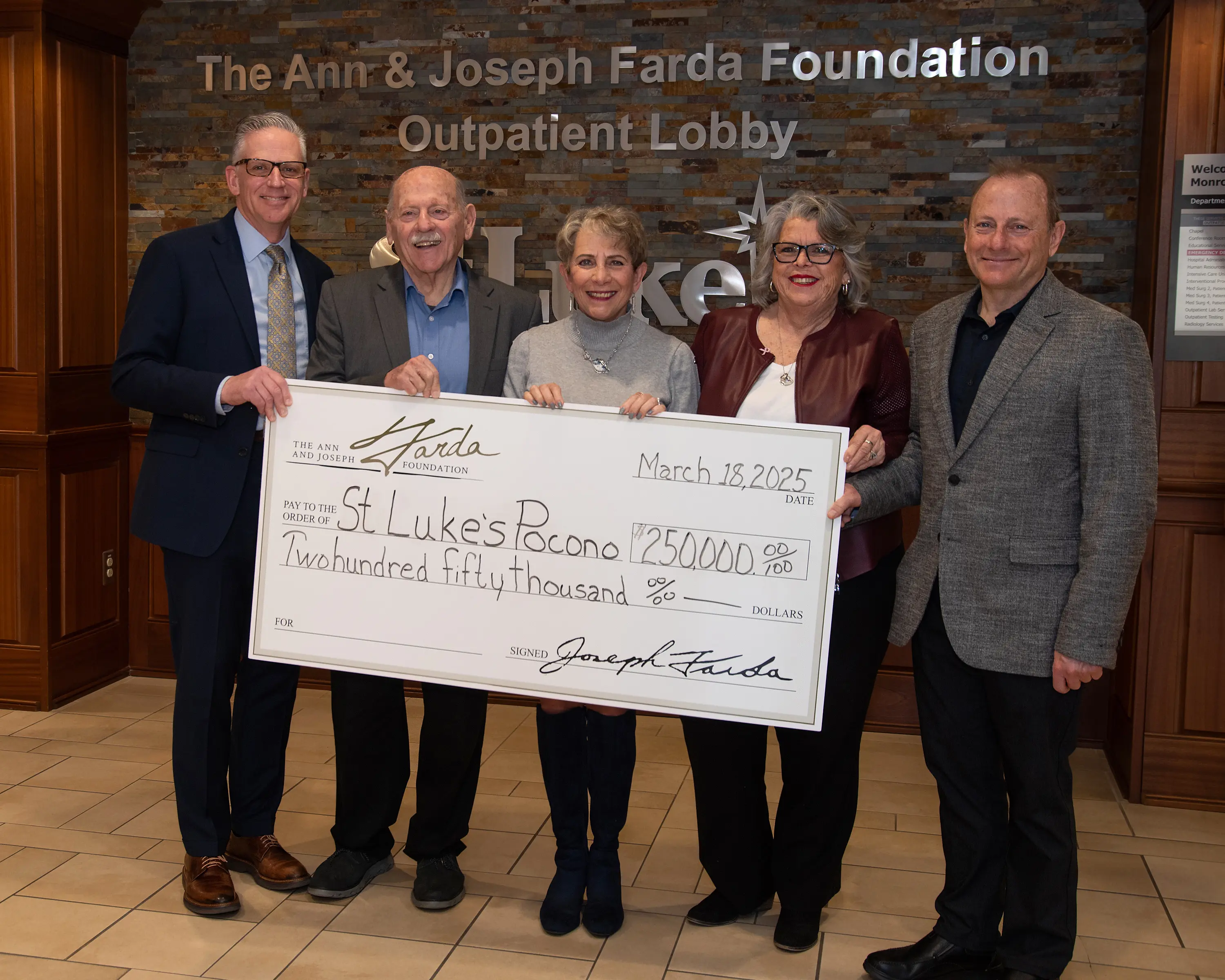St. Luke’s Expands Palliative Care for Patients with Chronic Disease
November 19, 2019
St. Luke’s University Health Network is among the few hospital systems nationwide expanding palliative care, adding new practices, providers and programs to provide patients in the greater Lehigh Valley access to this important kind of care.
“St. Luke’s Palliative Care has opened four new offices this year alone, with a fifth to open in November,” Erin Bendas, DO, program director for St. Luke’s Palliative and Supportive Care, said. “We have added three new physicians with plans to hire additional social workers to support the growth of this department, which has also expanded the home program from 20 to 70 patients in just one year.”
Bucking downward national trends, St. Luke’s Palliative and Supportive Care has seen consistent growth for the past five years with more plans of expansion heading into 2020. “The number of people living with serious or chronic illnesses has been increasing, which is why we’ve seen a growth in this sector,” Dr. Bendas said.
Palliative care is a medical subspecialty focused on providing relief from the symptoms and stress of a serious, chronic disease or life-threatening illness. Palliative clinicians have specialized training to care for patients and families living with diseases and conditions like cancer, end-stage renal or liver disease, COPD, heart failure, advanced dementia or progressive neurological diseases like advanced MS (multiple sclerosis), ALS (amyotrophic lateral sclerosis) or Parkinson’s disease. Palliative care is provided at any stage of illness, often at the same time as curative treatments.
“Despite the growing need for palliative care, patients in some parts of the country don’t have access to it,” Bendas said. “We’re fortunate that because we are part of a Network that supports palliative care, we’re able to offer patients living with a serious illness and their families high-quality care close to where they live.”
Palliative care providers care for the physical, social, emotional and spiritual needs of patients with a life-limiting illness. They work to help manage pain and provide a plan of care while also communicating and coordinating with other health care professionals involved with a patient’s care, which helps reduce the stress and anxiety that often accompany caring for a family member with a serious illness.
“Our team focuses on treating the whole patient, including his or her family, not on treating the disease itself,” Dr. Bendas said. “Our compassionate care is always focused on improving the quality of life for our patients, helping them and their families focus on what’s important in their lives.”
Outpatient service locations within the St. Luke’s Network are staffed by a care team including physicians, advanced practitioners, nurse practitioners, social workers, nurses and medical assistants. In addition, the palliative team is represented in cross-specialty committees and programs throughout the Network.
Patients can self-refer to St. Luke’s Palliative and Supportive Care or obtain a referral from their specialist or family physician. It can be provided at any age and any stage of illness. Talk to your provider for more information about how palliative and supportive care can help you or call the office to schedule an appointment (484) 526-3648.
St. Luke’s Palliative and Supportive Care Locations:
Bethlehem: 701 Ostrum Street, Suite 504, Bethlehem, PA 18015
Anderson: 1600 St. Luke’s Blvd., Cancer Center, 2nd Floor, Easton, PA
Allentown: 3050 Hamilton Blvd, Suite 110, Allentown, PA
Monroe: 208 Lifeline Road, Suite 103, East Stroudsburg, PA
Quakertown: 1021 Park Blvd., Suite 200, Quakertown, PA
Warren: 123a Roseberry, Phillipsburg, NJ 08865
Miners: 120 Pine Street, Suite B, Tamaqua, PA
Read More NewsLatest News


March 24, 2025
Monroe Campus Expansion Supported by Farda Family

March 21, 2025